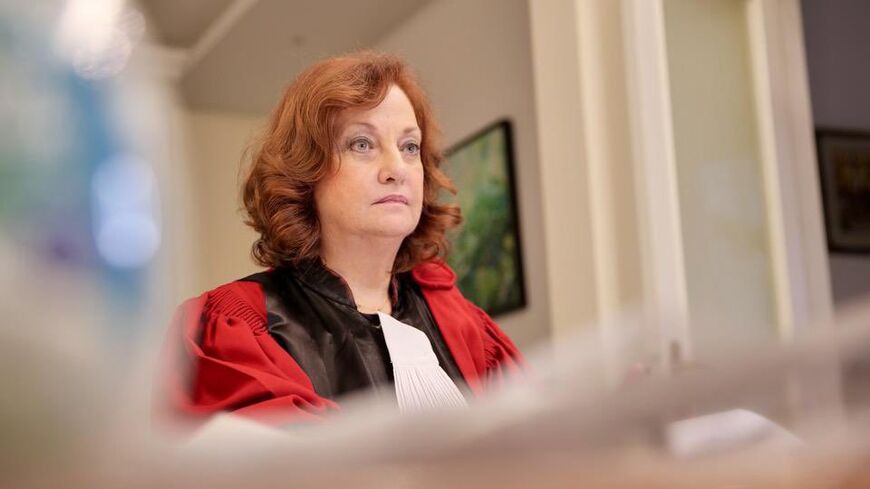BEIRUT — The Lebanese judiciary's disciplinary council issued a ruling on Thursday to remove from office Judge Ghada Aoun who has been investigating corruption cases, the official National News Agency said.
A senior judicial source told Reuters that the disciplinary council, which looks into matters relating to the conduct of administrative judges, voted unanimously to expel Aoun after receiving several complaints against her over her work.
According to local reports, the expulsion came after the council's head, judge Jamal al-Hajjar, summoned Aoun over legal violations including making statements on cases to the media and on social media — which judges are prohibited from doing.
Speaking to reporters after leaving the council session, Aoun condemned the decision, describing it as “malicious prosecution.” She said she was being punished for doing her job to fight corruption, which no one else dared to do.
“I am not afraid of anyone, even if they want to kill me,” she added.
Who is Ghada Aoun?
Aoun was born in 1957 to a Christian family from the town of Damour, 20 kilometers south of Beirut. According to the Lebanese news outlet L'Orient Today, she fled the town with her family after the 1976 Damour massacre at the hands of Palestinians militants. In the late 1980s, the family supported Michel Aoun, who was then the commander of the Lebanese army.
“What does it matter if I sympathize with the president? It has nothing to do with my work at all. The political parties might well call me, and they all do but, believe me, I never obey,” the judge told L’Orient Today in an interview last year.
Aoun began her career in 1981 after graduating with a law degree from the University of Saint Joseph in Beirut. In 2017, she was appointed Mount Lebanon’s Public Prosecutor.
#Lebanon fired its head of prosecution Judge Ghada Aoun for daring to investigate cases of #Corruption in the country including prosecuting fraudster #RiadSalameh.#GhadaAoun is now a de-facto hero of justice and accountability in #Lebanon.#غادة_عون
pic.twitter.com/OyNkOtlrdb— Charbel Hage (@Charbel__Hage) May 4, 2023
Since the financial collapse in October 2019, Aoun has been making the headlines for going after prominent officials and politicians that were once considered untouchable by law. The 65-year-old judge was praised by many for her work, while others have accused her of bias toward former President Michel Aoun (they are not related) and his Free Patriotic Movement (FPM).
In 2019, Aoun pressed charges against now caretaker Prime Minister Najib Mikati and Bank Audi for making illicit gains through subsidized housing loans. In 2021, she began an investigation into the Mecattaf money exchange company and Societe Generale Bank for allegedly withdrawing dollars from the market and shipping the funds abroad at a time the economic crisis was worsening. Accompanied by activists close to the FPM, she raided the offices of the Mecattaf company on multiple occasions, defying a senior judiciary decision dismissing her from the case.
One of her most controversial cases is the probe launched against central bank governor Riad Salameh, whom she charged with financial crimes, including embezzlement, money laundering and illicit enrichment. Salameh denies any wrongdoings and accuses judge Aoun of being politically biased. The case has become majorly politicized and deepened divisions within the judiciary.







